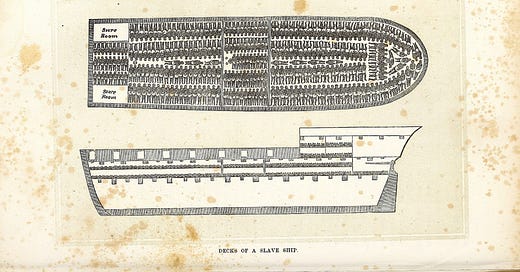Apartheid Studies (AS) seeks to understand and account for the persistence of oppression, harm, and injustice in human society. Humans, it seems, are fairly able to endure harm and discomfort if it is temporary in nature. This is due to the quite reasonable expectation - indeed a calculation - that the hurt will surely subside and go away. Surely, nothing lasts forever, even pain and injustice. Yet, the real research question that remains open and ripe for significant study is far larger, far more serious and far more sinister because any temporary discomfort is just a base. The far larger research question is what happens when the harm and discomfort persists and goes on for years, decades, generations and hundreds of years. This is the large research question that motivates AS. How does oppression persist? The central claim of AS is that there is never adequate manpower for oppression, and the costs of oppressing others are always high. That is, oppressors are always in the minority and, meanwhile, the maintenance of oppression is inherently costly. Apartheid’s systemic challenge, thus, is to find and maintain a minimum cost state, a minimum expense state (i.e., a restful state) where oppressors can get away with doing less and less supervision and central commanding of oppression. Oppression can only persist in this holiday state. But, because oppression must be maintained if it is to persist, there is always a cost – always a high cost – to oppressing others. This is a circular dilemma for oppressors, for which apartheid constitutes a solution of sorts. The solution for apartheid is to invoice the costs of oppression on the oppressed themselves. This is what achieves the restful state – the sabbatical state so richly illustrated in the Introduction and Chapter 6 of Apartheid Studies: A Manifesto. Hence, we say that apartheid is oppression on holiday. Hence, we speak about entropy, about the sustainable development of oppression (SDO). The study of this human condition is what constitutes AS.
A key image in AS is that of Africans queueing at the Pass Office for the hated dompas. How does one queue for the very thing that harms him or her? Why? That is, what we have learnt is that oppression principally reorganises society by means of decimalisation, whereby it forces the oppressed into a constantly overcrowded state of life socio-economically expressed as queues. Queues force the poor and oppressed to take turns, and therefore to self-organise and self-sort on the basis of this turn-taking. Scarcity in human society naturally leads to queues, and queues are a form of socio-economic self-organisation by victims themselves that enables them to live with harm (the same way the public health establishment talks of learning to “live with” viruses, in an endemic state). Essentially, the oppressed have a tendency to queue and pack themselves most densely. Basically, apartheid is like a ratings agency that compels its victims to assure the system that there is no crisis – after all, “these people” can take up the least space in the world, in the fashion of the tightly packed holdings of a slave ship, and live on less and less, resiliently, from hour to hour, day to day, and month to month. When victims self-organise and self-sort densely like this (what we have called hexagonalisation), they release the oppressor from the onerous obligation to supervise and centrally command the act of oppression. Densed life is the inverse of sabbaticality (i.e., the life of oppressors on holiday, the life of Province X). Here, in the dead zones of the world, marked by attritional life organised around a-dollar-a-day, low wages, minimum wage, basic income, low LSM, and precarity, the oppressed seek “rest” and entropy through queues and demotion. But this “rest” that the poor and oppressed get is not real rest. It is an imitation. It is fake. There is no real rest in austerity, tightening of belts, basic income, and resilience. Instead, austerity, tightening of belts, and resilience give you persistent, permanently low maintenance oppression - the sort that allows life to go on. The clear difference is that permanent oppression, courtesy of apartheid, is sustainably developed. Oppression, due to the peculiar conduct of turn-taking and self-organisation by the victims themselves, can go on and on forever. It does not need to end. It is not a crisis. Permanent oppression, therefore, is apartheid’s gift to mankind. This, in a paragraph, is the subject of Apartheid Studies.
To learn more about this emerging theoretical framework, read here: https://africaworldpressbooks.com/apartheid-studies/




